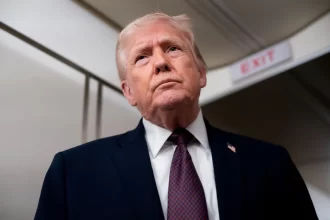After 43 grueling days that left hundreds of thousands of federal workers without pay, the longest government shutdown in U.S. history finally came to an end yesterday. Congress approved a spending package to reopen federal departments and agencies, bringing relief to civil servants and millions of Americans affected by the standoff.
The Republican-led House of Representatives voted largely along party lines to pass the Senate-approved bill, a move that angered some Democrats who viewed it as a compromise of principle.
House Speaker Mike Johnson did not mince words ahead of the vote: “They knew that it would cause pain, and they did it anyway. The whole exercise was pointless. It was wrong and it was cruel.”
The legislation funds military construction, veterans’ affairs, the Department of Agriculture, and Congress itself through next fall, while the rest of the government will be funded until the end of January. Approximately 670,000 furloughed workers are expected to return to their posts, and those who continued working without pay—including more than 60,000 air traffic controllers and airport security staff—will receive back pay.
The bill also reinstates federal employees who were fired during the shutdown, and air travel, which suffered significant disruption, is expected to gradually normalize. President Donald Trump planned to sign the legislation during an Oval Office ceremony at 9:45 p.m.
While Trump remained largely quiet about the agreement, he accused Democrats on social media of causing $1.5 trillion in damages with their “antics of viciously closing our Country.” Meanwhile, the Congressional Budget Office estimates the shutdown cost the economy around $14 billion in lost growth.
For Democrats, the outcome was bittersweet. Despite holding firm for over five weeks on demands to extend pandemic-era tax credits to make health insurance more affordable, a small group of Senate moderates brokered a deal with Republicans, leaving the party to reckon with a compromise that fell short of its goals.
House Minority Leader Hakeem Jeffries framed the effort as a partial victory: “Over the last several weeks, we have elevated successfully the issue of the Republican health care crisis, and we’re not backing away from it.” Still, progressive critics have called for stronger leadership as the party evaluates its next moves ahead of the 2026 midterms.
Outside Washington, prominent potential 2028 presidential contenders voiced their disappointment. California Governor Gavin Newsom described the deal as “pathetic,” Illinois Governor JB Pritzker called it an “empty promise,” and former Transportation Secretary Pete Buttigieg labeled it a “bad deal.”
As the government reopens, the focus now turns to recovery and reconciliation—not just for federal employees, but for Americans eager to see functional governance return to Washington. Beyond the partisan headlines, families, workers, and communities are simply relieved to move forward, paycheck in hand.








